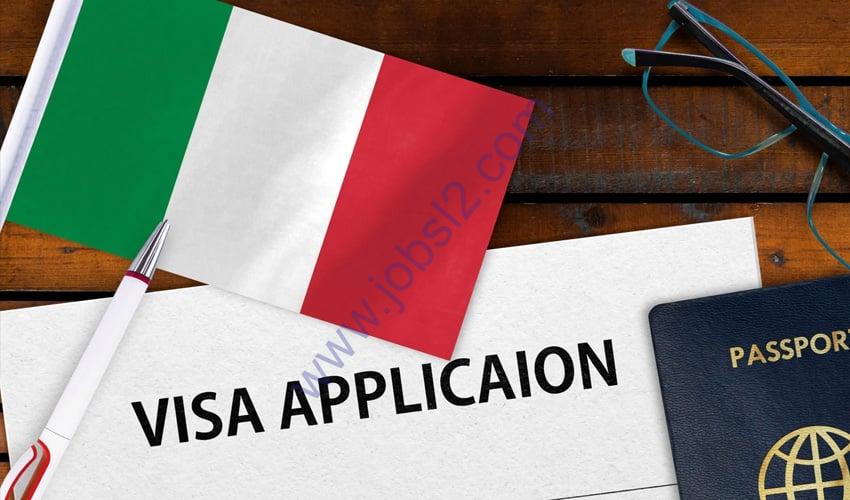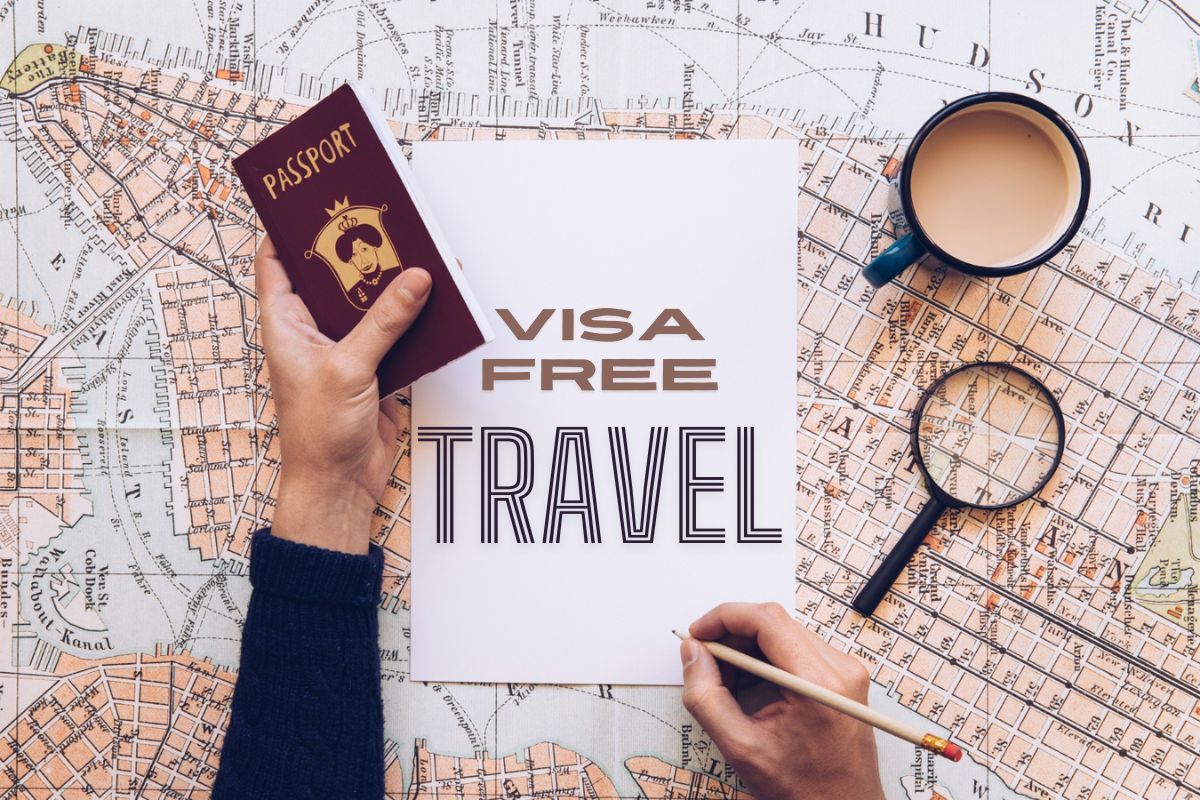Applying for a Job in Italy
The Jobsl2 Free Visa Program
Understanding the Jobsl2 Visa Program
What is the Jobsl2 Visa Program?
The Jobsl2 Visa Program is an initiative designed to help job seekers from various countries, including non-EU nations, find employment opportunities in Italy while also facilitating their visa application process. This program makes it easier for applicants by integrating job placement and visa issuance in a streamlined manner.
Overview of the program
With Jobsl2, you not only gain access to a plethora of job listings but also receive assistance in navigating the complex visa application stages. The platform to simplify the journey, making it less daunting for potential expatriates to transition to a new life in Italy.
Purpose and benefits
The main purpose of the Jobsl2 Visa Program is to address labor shortages in certain sectors in Italy while providing job seekers with the chance to experience life in one of the most beautiful countries in the world. Benefits include:
- Tailored job offers specific to your skills.
- Professional guidance throughout the application process.
- A chance to immerse yourself in Italian culture.
Eligibility criteria for applicants
Generally, eligibility hinges on your professional qualifications and the job openings you are interested in. Key criteria include:
- Relevant educational background or work experience.
- Language proficiency (Italian is a plus, though not always mandatory).
- Compliance with other visa requirements, such as health insurance.
Types of Jobs Available
Sectors and industries hiring
Italy’s diverse economy means many sectors are actively hiring. Key industries include:
- Tourism and hospitality: A thriving sector with constant demands for versatile roles.
- Technology and IT: Growing rapidly, with many startups and established firms looking for talent.
- Fashion and design: Italy is a global hub for luxury brands.
- Healthcare: Constant need for skilled professionals ranging from nurses to specialists.
Skill requirements and job types
Jobsl2 offers a variety of roles catering to different skill levels. From entry-level jobs in tourism to specialized positions in tech, applicants can find something that matches their experience and expertise.
Short-term vs long-term positions
While some job offers are for seasonal work, particularly in tourism, many are for permanent positions, giving you the chance to plant roots in Italy. Consider your long-term career goals when making your application decisions.
Application Process Overview
Steps to start your application
The application process generally involves these steps:
- Create an account on the Jobsl2 platform.
- Upload your resume and cover letter.
- Start applying for jobs that match your skills and interests.
Required documents and information
When applying, you will typically need:
- A valid passport.
- Copies of relevant qualifications and diplomas.
- Proof of language skills (if applicable).
Timeline from application to visa issuance
The timeline can vary, but applicants should expect:
- 1-2 weeks for job interviews.
- Visa processing time can take anywhere from 4-8 weeks after receiving a job offer.
Preparing Your Application
Required Documentation
Here’s a detailed list of documents you may need to gather:
- Resume: Updated and tailored to the job.
- Cover Letter: Specific to the job you’re applying for.
- Academic transcripts: Proof of education.
- Work experience letters: From previous employers.
Tips for gathering and organizing documents
Organize your paperwork in a dedicated folder, either physically or digitally. Ensure everything is up-to-date and easily accessible, which will save you time during applications.
Common mistakes to avoid
Avoid generic applications; tailor your resume and cover letter to each job. Also, ensure there are no spelling or grammatical errors, as these can create a poor impression.
Crafting Your Resume and Cover Letter
Best practices for resume writing
Keep your resume concise, ideally one page. Highlight relevant experiences and achievements. Use bullet points for clarity and easy reading.
How to tailor your cover letter for Italian employers
Reflect their values and culture in your cover letter. Research the company and mention specific reasons why you want to work there, addressing how your skills meet their needs.
Importance of language and formatting
When applying, using clear language and proper formatting can greatly enhance your presentation. If possible, write in Italian, at least partly, to showcase your language skills.
Researching Potential Employers
Techniques for finding job openings
Utilize job boards, LinkedIn, and Jobsl2’s database to identify the best opportunities. Networking events and forums can also be great places to discover hidden job openings.
Networking tips and resources
Engage with professional groups on social media and attend industry events. Building connections can often lead to job referrals, providing you with an inside track.
Understanding the Italian job market
Research trends and hot sectors to understand where demand lies. The more you know, the better you can position yourself in your job applications.
Navigating the Visa Application
Completing the Application Forms
The application involves various forms, usually issued by the immigration office in Italy. Make sure to:
- Fill out all fields accurately.
- Double-check for any missing information.
How to fill them out correctly
Follow the instructions carefully and consider seeking help from someone who has been through the process for guidance. Avoid leaving blank spaces unless indicated.
Common errors to watch for
Common mistakes include inaccurate personal details, mismatched dates, and neglecting required signatures. Always review your forms before submission.
Interview Preparation
What to expect during the interview
Interviews in Italy may involve a mix of standard questions about your experience and specific queries about how you would fit into the company culture.
Common interview questions in Italy
Be prepared for questions like:
- “Why do you want to work for our company?”
- “What are your strengths and weaknesses?”
Cultural considerations in Italian interviews
Italians value interpersonal skills, so be ready to engage in light conversation. A firm handshake and direct eye contact can leave a positive impression.
Visa Fees and Financial Considerations
Overview of application fees
Visa fees can vary but generally range from €60 to €116, depending on your nationality. Budget for additional costs as well.
Additional costs (travel, accommodation)
Consider budgeting for travel expenses, initial accommodation, and food as you settle in.
Financial documentation to support your application
You may need to show proof of funds or a job offer letter that stipulates the salary, ensuring you can support yourself while in Italy.
Moving to Italy
Finding Housing
Explore both short-term and long-term accommodation options and be aware of the rental process, including security deposits and lease agreements.
Options for short-term vs long-term accommodation
Short-term rentals might include Airbnb or temporary housing, while long-term options can be found through local agents.
Rental processes and legalities
Familiarize yourself with the rental laws in Italy, as they can be quite different from your home country. Reading the lease carefully before signing is crucial.
Understanding local neighborhoods
Research neighborhoods that match your lifestyle and needs. Visit potential areas if possible to get a feel for the community.
Settling In
Tips for registering with local authorities
After moving, register with the local municipality and apply for a codice fiscale, a personal identification number necessary for many day-to-day activities.
Opening a bank account in Italy
Choose a bank that offers services for expatriates, and have relevant documents ready, including your passport and proof of address.
Navigating healthcare and social services
Register with the national health service to access healthcare. Familiarize yourself with local practices for a smooth transition.
Integrating into Italian Culture
Understanding social norms and customs
Being aware of local etiquette, such as greetings and meal times, will help you integrate smoothly. Italians appreciate politeness and a friendly demeanor.
Language tips for new residents
Consider enrolling in language classes or practicing with locals. Learning a few basic phrases can go a long way in making connections.
Local communities to support expatriates
Join expatriate groups or community organizations to meet others in similar situations. Shared experiences can make the transition easier.
Success Stories and Challenges
Personal Accounts from Successful Applicants
Hear from individuals who have successfully found jobs through Jobsl2. Their stories provide practical insights and motivation for your journey.
Key takeaways from their experiences
Common themes often include perseverance, the importance of networking, and the ability to adapt to new environments.
Challenges Faced by Job Seekers
Many face language barriers, cultural differences, and, of course, the complexity of the visa process.
Overview of potential obstacles
Understanding that challenges are part of the journey can help you remain positive and focused on your goals.
Strategies for overcoming challenges
Seek assistance from community groups, hire experienced consultants if necessary, and continuously work on your language skills to boost confidence.
Resources for assistance
Utilize online forums, social media groups, and local organizations dedicated to supporting expatriates for ongoing help and information.
Future of Job Opportunities in Italy
Potential sectors for new applications
As industries evolve, technology, renewable energy, and creative sectors are expected to continue experiencing growth.
Predictions for changes in visa policies
Keep an eye on government announcements regarding immigration policies, as they can change based on economic needs.
Trends in job market growth
Pay attention to labor market reports and news from Italy to stay informed about emerging trends and opportunities.
Moving to Italy can be an exciting journey, filled with professional growth and personal discovery. Embrace the process, stay curious, and enjoy everything this beautiful country has to offer.


Register with the national health service to access healthcare. Familiarize yourself with local practices for a smooth transition.
Integrating
Hay I am Pakistani my Name is Ameer hamza and my purpose I go to Italy for a job so please give the job please i am FSC Student And My skill I clear the DIT I am very expert for computer
I am civil engineer
I mehdi shaikh from pakistan i have no job i need job
I need visa plz help me
Plz plz help me I need visa
I’m from Pakistan and I’m looking for a Visa and tickets I am only Single man and my name is Asif Please Can you help me